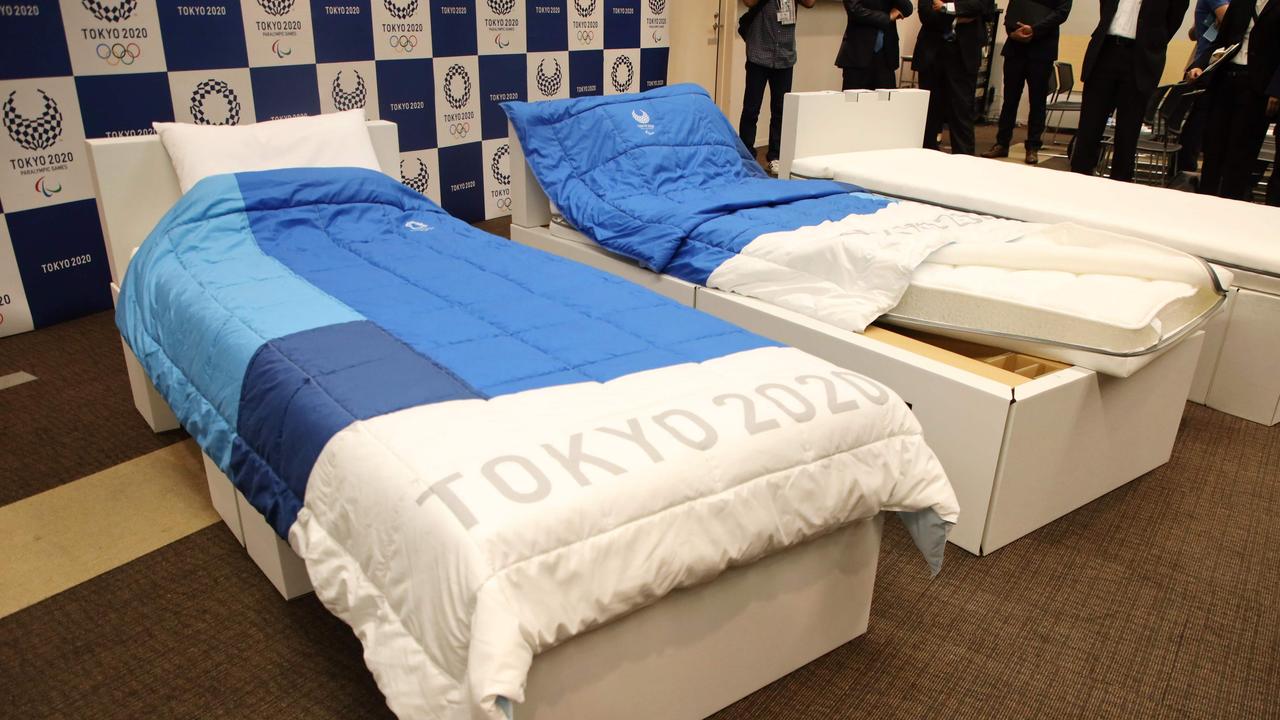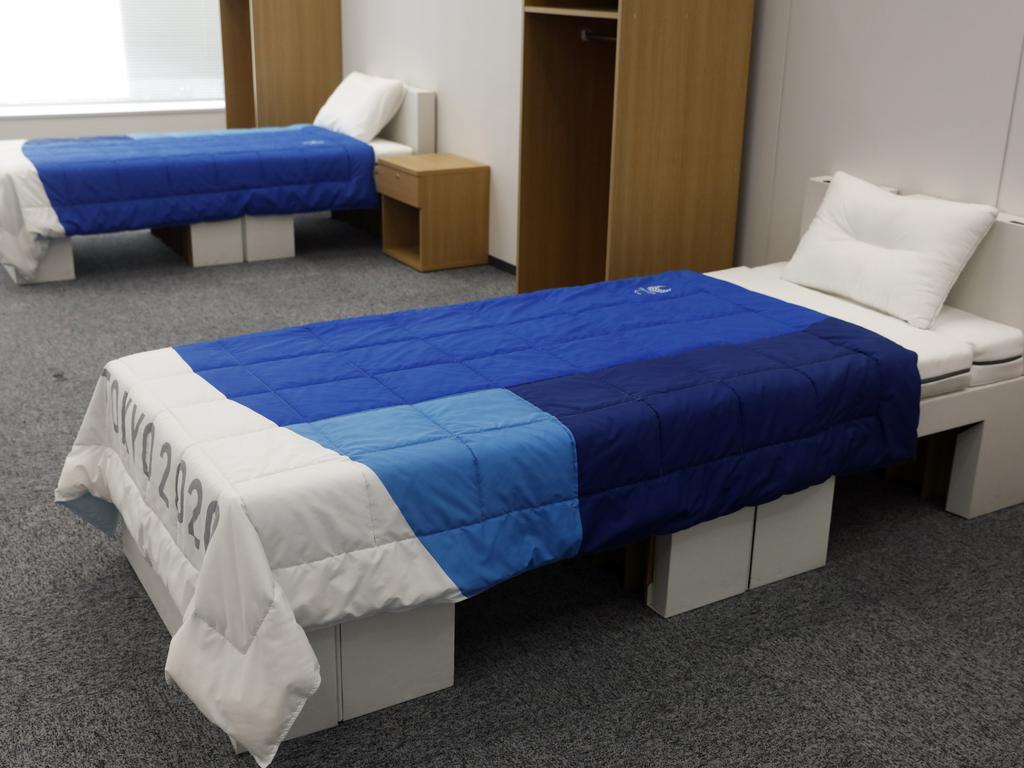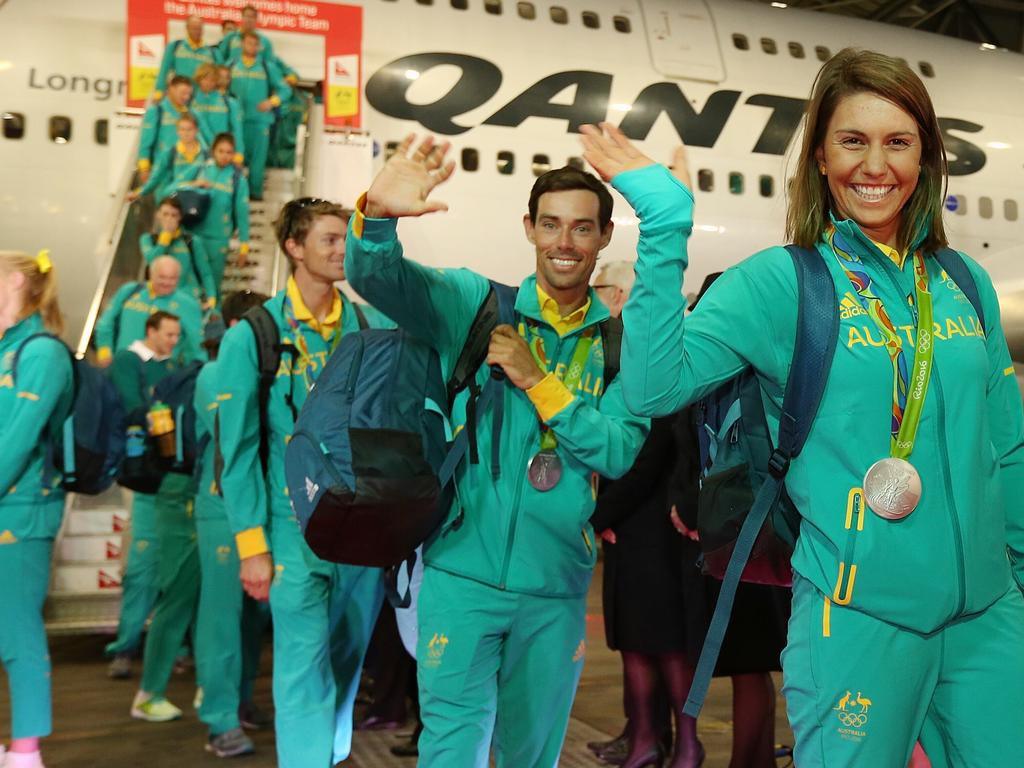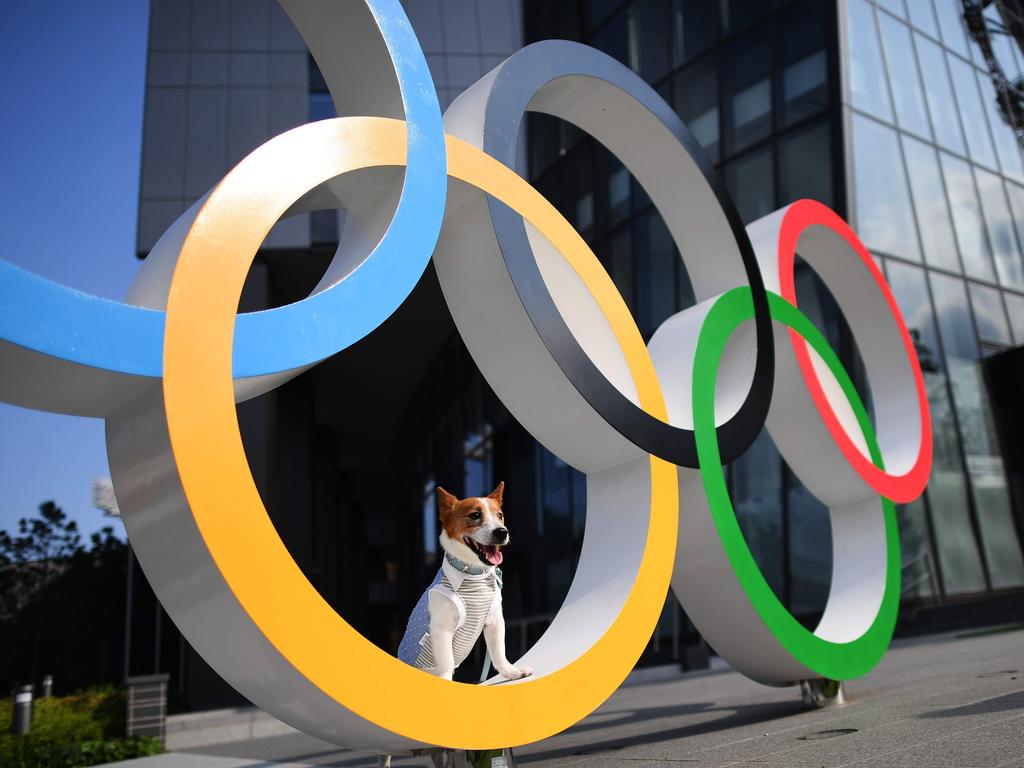Major flaw in Tokyo 2020 Athletes Village eco-friendly beds
When the Athletes village beds were unveiled for the Tokyo Olympics, basketballer Andrew Bogut pointed out one major issue.

Randy athletes are worried eco-friendly cardboard beds could curtail their sex life at the Tokyo Olympics, despite manufacturers promising they are sturdy enough.
The bed frames in the Athletes Village at this year’s Olympics will be made of burly cardboard to reduce impact on the environment.
“Those beds can stand up to 200 kilograms,” explained Takashi Kitajima, the general manager of the 2020 Athletes Village.
“They are stronger than wooden beds.”

At 2.10 metres long, the beds should be suitable for all but the very tallest athletes.
While the snug singles at the athletes’ village underline Tokyo’s commitment to sustainability and delivering a “green” Olympics, fears they could fold under pressure look to be unfounded.
Australian basketball player Andrew Bogut raised the alarm on Twitter, questioning whether the cardboard could withstand two muscular athletes.
“Great gesture … until the athletes finish their said events and the 1000s of condoms handed out all over the village are put to use,” Bogut tweeted.
Great gesture...until the athletes finish their said events and the 1000’s of condoms handed out all over the village are put to use........🙉🙈 https://t.co/4wzaoDHL34
— Andrew Bogut (@andrewbogut) January 9, 2020
However, makers Airweave promised the beds have been through rigorous stress tests.
“We’ve conducted experiments, like dropping weights on top of the beds,” a spokesperson told AFP.
“As long as they stick to just two people in the bed, they should be strong enough to support the load.”
At the 2018 Winter Olympics in PyeongChang, where usage of dating app Tinder soared almost 350 per cent, organisers doled out 110,000 condoms to participants.
London organisers supplied 150,000 condoms to 2012 Olympic athletes at what was dubbed the raunchiest Games in history, until Rio four years later, where athletes received 450,000, equivalent to 42 condoms each.

Tokyo officials have yet to decide how many condoms they will supply this year, but are leaning towards the “London range”.
“We prefer not to destroy things we build but continue to use them — this is a major element for providing sustainability,” Kitajima said.
Former Olympic long jumper David Culbert admitted competitors took part in plenty of sexual activity at the Games, but stories are overplayed in the media.
“I think it’s a bit of a myth. I’m sure it exists,” Culbert told foxsports.com.au in 2016.
“I’m sure there’s the Fabio who runs around and more interested in notches on the belt than how they’re going in the Games but for most of these people it’s the ultimate moment of their sporting career.
“You were slightly envious of a diver or someone on the opening morning; they’re done by lunchtime day one.
“Therefore you’ve got 16 days of Club Med on steroids … It’s a ramped-up, hyped-up Club Med if you no longer have to compete.”
In all, 18,000 beds will be required at the Athletes Village during the Olympics that begin on Friday, July 24th. Only 8000 beds will be needed for the Paralympics.

The organisers are making a concerted effort to reduce carbon emissions generated by the Games, according to an environmental researcher on the city’s taskforce.
All medals will be made from metal extracted from recycled consumer electronics, including about 6.2 million used mobile phones.
The Olympic torch is made from aluminium waste, and the podiums from recycled household and marine plastic waste.
Electricity for the Games will come from renewable sources.
With wires



